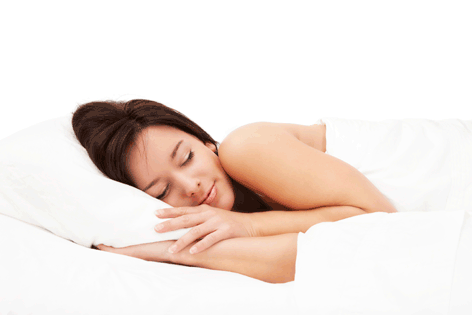
In our busy, modern lives, we've lost touch with our physicality, our connection to the Earth and our natural cycles -- including sleep. But spring is coming --a welcome reminder of the rhythms of nature. Just as the earth comes back to life, so do we "come alive," waking up renewed and emerging from the dream-state of winter. The good news is we tend to increase our physical activity and get outside more. Yet increased daylight hours can also cause us to compromise on our sleep. But sleep is nature's way of putting us back in balance. It's a natural regenerator of brain as well as body. So take a cue from the Native Mexican Huichol, and go to sleep.
The Huichol recognize that to live in balance, we need to observe our connection to mother earth, and follow her natural cycles, waking and sleeping with the sun's rise and setting. Physically active all day long, they make sure to get a full night's rest so they can get up ready to power and laugh through another day. If they need to catch up on sleep, they take a siesta, a power nap. There's very little dementia or Alzheimer's in this remarkable, wise culture and their understanding of the power of sleep is one key reason why.
Here are 5 ways that sleep helps our brains stay healthy and balanced:
Sleep orders and strengthens our memories.
Sleep helps the brain file the day's activities away. As we sleep, the brain fast-forwards through the patterns of brain activity that occurred during the day. This replay not only organizes memories, but also strengthens the microscopic connections between nerve cells in the hippocampus, the brain's own filing system.
Sleep may reduce the risk of Alzheimer's and dementia.
Lack of sleep, or sleeping less than five hours a night, can lead to a build-up of beta-amyloid, a toxic protein that forms harmful plaques in the brain of those with Alzheimer's Disease and dementia. Getting a good seven hours of sleep a night can reduce the risk that these plaques accumulate in our brains.
Sleep makes the brain stronger.
There's a reason we feel more clear-headed after a good night's sleep: we are. Sleep boosts alertness, replenishing the neurotransmitters that organize the neural networks in our brains. These networks are essential not only for memory, but also for learning, mental performance and problem solving.
Sleep gives the brain time to detox.
Sleep helps restore the brain by flushing out toxins (including harmful proteins) that build up during waking hours. Our brains have a drainage system based on the movement of clear cerebrospinal fluid through channels surrounding the blood vessels. The process, managed by special cells in the brain (glial cells), has been named the brain's glymphaticsystem by researchers.
Sleep enables our brains to perceive pleasure.
The link between sleep and pleasure has to do with stress: continual, low-grade stress diminishes our ability to get a good night sleep, triggering a vicious cycle. The more stressed we are, the less we sleep; the less we sleep, the more stressed we get. The result is lowered levels of DHEA, the "life is good" hormone. Without sufficient DHEA, it's harder for us to experience happiness. It doesn't just seem as if we're in a bad mood. Chemically, we are.
We may not live like the Huichol, but we can learn from their wisdom. They don't need studies to know the regenerating, brain-balancing effects of slumber, but in our modern, hectic lives, we can always use a reminder.
Want to get more sleep? Try these three simple tips:
•Do a light workout. A little exercise can go a long way to bring back peaceful sleep. Try to get in a period of moderate exercise for at least three consecutive days, and take note on how it improves your sleep patterns.
•Cut back on stimulants. Don't try to prop up your energy levels or elevate your mood with caffeine, alcohol or sugar. Keep caffeine for the early part of the day. You'll notice you begin to sleep better at night: excessive alcohol actually releases a hormone that will disrupt your sleep.
•Leave your cares behind. Try this simple stress reduction exercise. At the end of the day, just go over the day's events, and then let them go -- into an imaginary sacred circle in front of your heart. This helps you prepare to go into deep sleep, your worries put safely away.
This originally appeared on Care2.